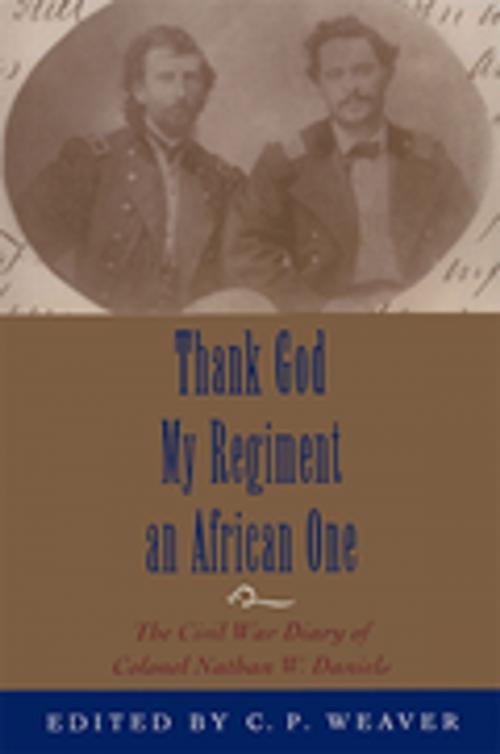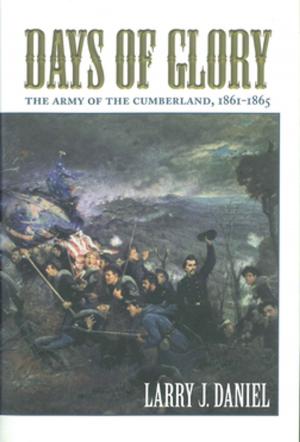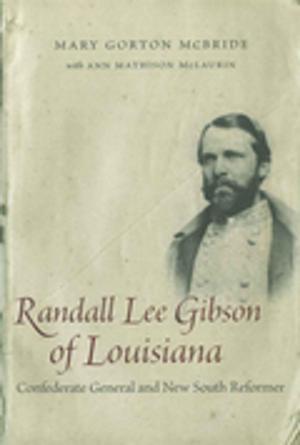Thank God My Regiment an African One
The Civil War Diary of Colonel Nathan W. Daniels
Nonfiction, History, Americas, United States, Civil War Period (1850-1877)| Author: | ISBN: | 9780807156407 | |
| Publisher: | LSU Press | Publication: | March 1, 2000 |
| Imprint: | LSU Press | Language: | English |
| Author: | |
| ISBN: | 9780807156407 |
| Publisher: | LSU Press |
| Publication: | March 1, 2000 |
| Imprint: | LSU Press |
| Language: | English |
"Incredible!... Anyone interested in the hardship, frustration, and courage of soldiers at war will be enthralled by this book." -- James G. Hollandsworth, author of The Louisiana Native Guards
Until now, Union army colonel Nathan W. Daniels has been a forgotten man with a forgotten regiment. The white commanding officer of the 2nd Louisiana Native Guard Volunteers, a black regiment, he was removed with his men from mainland military activity and confined to obscure duty on Ship Island, ten miles off the coast of Mississippi. However, as Daniels' intriguing diary documents, despite an unrenowned existence that has earned them little attention from historians, the 2nd Native Guards represent a pioneering stage in the history of black troops at war.
The story of the Louisiana Native Guards is essentially the story of the first black commissioned officers in the Civil War. Ordered by General Benjamin F. Butler, the promotion of seventy-six educated, free blacks was an experimental step taken during the early days of black enlistment. However, within one year, nearly all the officers, including their white colonels, were forced out or had resigned in frustration.
Daniels lived the tale of these removals and confided his thoughts to his diary, a rare surviving narrative from someone of his rank and position. Woven through daily entries of routine life on the military post are his comments about his responsibilities and frustrations of being caught between the black and white military worlds of the day. He vividly recalls a fierce skirmish on the mainland at East Pascagoula, Mississippi, in which his black troops, having fought superbly, suffered most of their casualties from apparently intentional "friendly" fire from the Union gunboat Jackson, sent there to protect them.
In May, 1863, Daniels was arrested in New Orleans on seemingly trifling charges related to his duty on Ship Island. He continued his diary in the Federally occupied city, giving fascinating details of life there and chronicling his slow torture in the machinery of the military bureaucracy. He eventually separated from the army under circumstances that remain curious.
The diary also provides never-before-published pictures from wartime Ship Island, including photographs of members of Daniels' regiment, visiting ship captains, and Major Francis E. Dumas -- the highest-ranking black officer to see combat during the war. A superb resource in and of themselves, these photographs will fascinate Civil War enthusiasts.
The first published personal narrative by a regimental commander of free black troops, Thank God My Regiment an African One offers a unique glimpse into the daily lives of white leaders of the earliest black soldiers. It is a significant contribution to the ongoing documentation of the experience of black troops in the Civil War.
"Incredible!... Anyone interested in the hardship, frustration, and courage of soldiers at war will be enthralled by this book." -- James G. Hollandsworth, author of The Louisiana Native Guards
Until now, Union army colonel Nathan W. Daniels has been a forgotten man with a forgotten regiment. The white commanding officer of the 2nd Louisiana Native Guard Volunteers, a black regiment, he was removed with his men from mainland military activity and confined to obscure duty on Ship Island, ten miles off the coast of Mississippi. However, as Daniels' intriguing diary documents, despite an unrenowned existence that has earned them little attention from historians, the 2nd Native Guards represent a pioneering stage in the history of black troops at war.
The story of the Louisiana Native Guards is essentially the story of the first black commissioned officers in the Civil War. Ordered by General Benjamin F. Butler, the promotion of seventy-six educated, free blacks was an experimental step taken during the early days of black enlistment. However, within one year, nearly all the officers, including their white colonels, were forced out or had resigned in frustration.
Daniels lived the tale of these removals and confided his thoughts to his diary, a rare surviving narrative from someone of his rank and position. Woven through daily entries of routine life on the military post are his comments about his responsibilities and frustrations of being caught between the black and white military worlds of the day. He vividly recalls a fierce skirmish on the mainland at East Pascagoula, Mississippi, in which his black troops, having fought superbly, suffered most of their casualties from apparently intentional "friendly" fire from the Union gunboat Jackson, sent there to protect them.
In May, 1863, Daniels was arrested in New Orleans on seemingly trifling charges related to his duty on Ship Island. He continued his diary in the Federally occupied city, giving fascinating details of life there and chronicling his slow torture in the machinery of the military bureaucracy. He eventually separated from the army under circumstances that remain curious.
The diary also provides never-before-published pictures from wartime Ship Island, including photographs of members of Daniels' regiment, visiting ship captains, and Major Francis E. Dumas -- the highest-ranking black officer to see combat during the war. A superb resource in and of themselves, these photographs will fascinate Civil War enthusiasts.
The first published personal narrative by a regimental commander of free black troops, Thank God My Regiment an African One offers a unique glimpse into the daily lives of white leaders of the earliest black soldiers. It is a significant contribution to the ongoing documentation of the experience of black troops in the Civil War.















